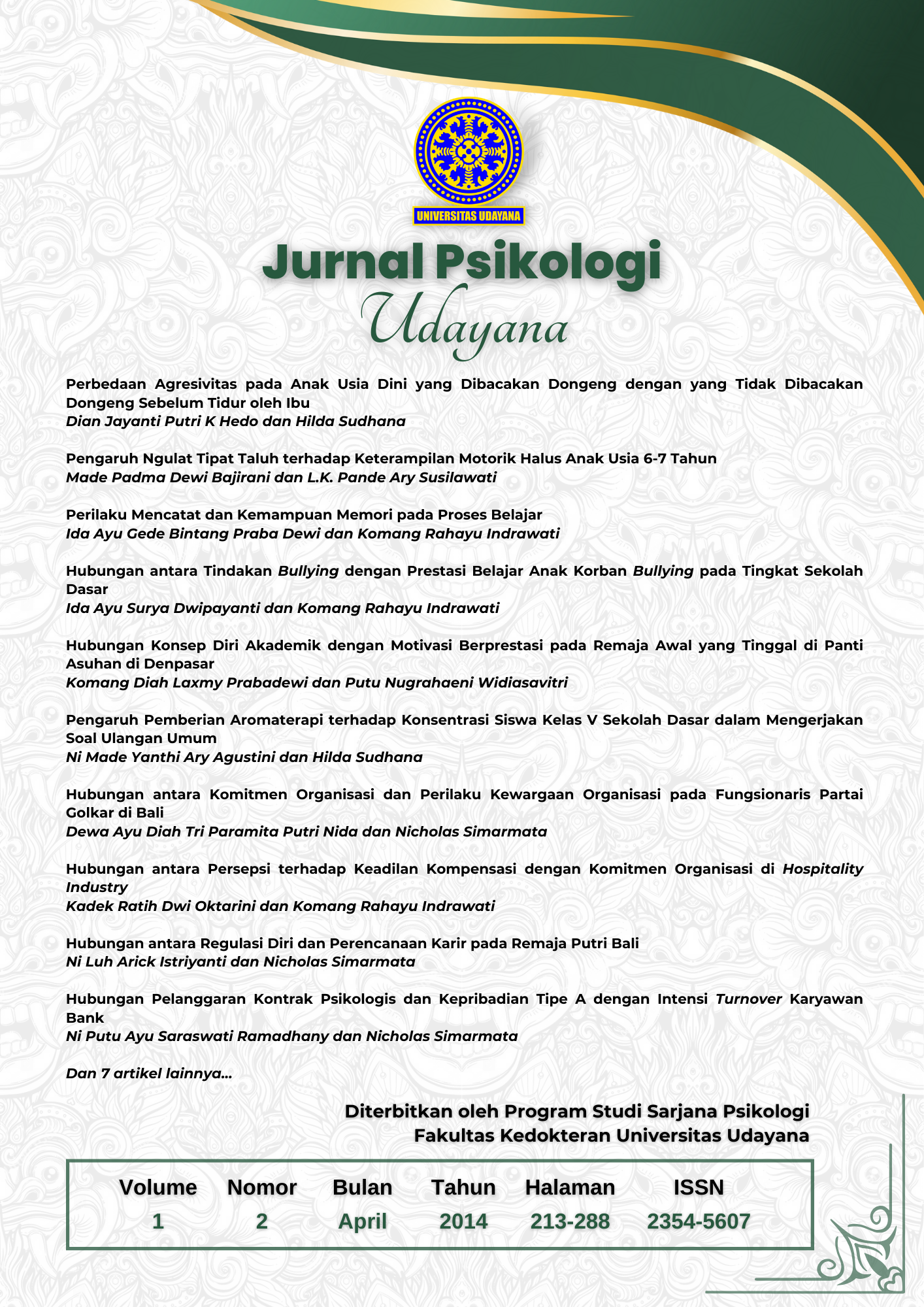Hubungan Antara Rasa Komunitas dengan Motivasi Kerja Pengurus Subak
Abstract
Subak is a traditional organization of irrigation that have been known as one of the world heritages. However, it recognition should be done with the way to accomplish real problems that happened in itself, which supposed to have particular concerns. One thing that could be done is increasing the sense of community among subak's committee so that they will have job motivation to run subak. Based on that fact, the aim of this study is to know the relationship between sense of community with job motivation among subak's committee.
Methods used in this study was quantitative research methods with product-moment correlation to do data analysis. The subjects were choosen with cluster sampling technique for the total number of 58 subjects. The measurements used were sense of community modified scales from McMillan and Chavis (1986) with 34 items (cronbach's alpha is 0,898 and validity coefficient ranged from 0,314-0,637) and job motivation modified scales from Dewi (2008) with 27 items (cronbach's alpha is 0,885 and validity coefficient ranged from 0,308-0,617).
The result of this study indicates that the correlation values of sense of community and job motivation is 0,696 with 0,00 probability (p<0,05). It explained that Ho rejected and Ha accepted. Those values indicates that there are positive and significant relationship between sense of community and job motivation of subak's comittee. In addition, determinant coefficient result is 0,484 that pointed the relative contribution among sense of community with job motivation is 48,4%. This result is similiar with the theory from Hughey, et.al. (1999) which reveals that sense of community will encouraged maningful results for organization.
Keywords: sense of community, job motivation, work motivation and subak’s committee
Downloads
Authors who publish with this journal agree to the following terms:
- Authors retain copyright and grant the journal right of first publication with the work simultaneously licensed under a Creative Commons Attribution-ShareAlike 4.0 International License that allows others to share the work with an acknowledgement of the works authorship and initial publication in this journal.
- Authors are able to enter into separate, additional contractual arrangements for the non-exclusive distribution of the journals published version of the work (e.g., post it to an institutional repository or publish it in a book), with an acknowledgement of its initial publication in this journal.
- Authors are permitted and encouraged to post their work online (e.g., in institutional repositories or on their website) prior to and during the submission process, as it can lead to productive exchanges, as well as earlier and greater citation of published work (See The Effect of Open Access).













